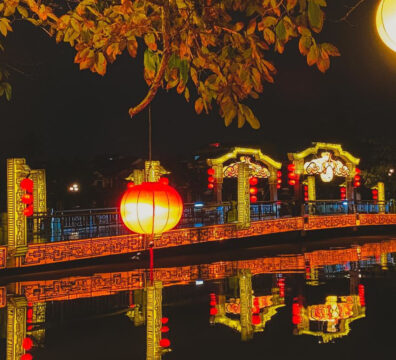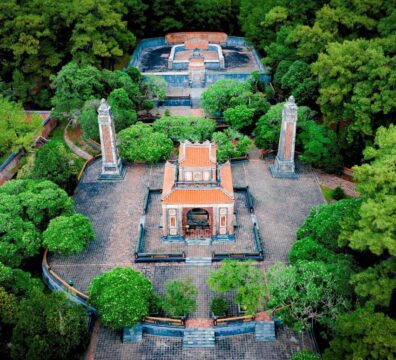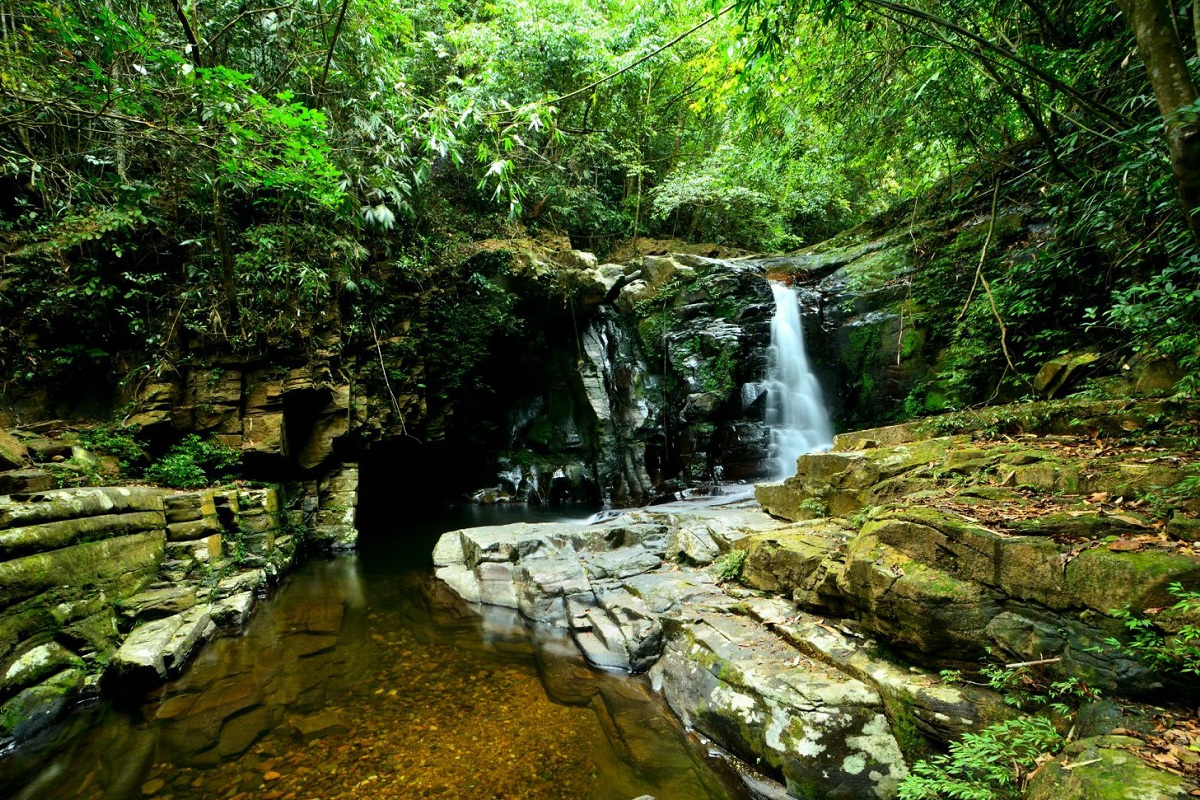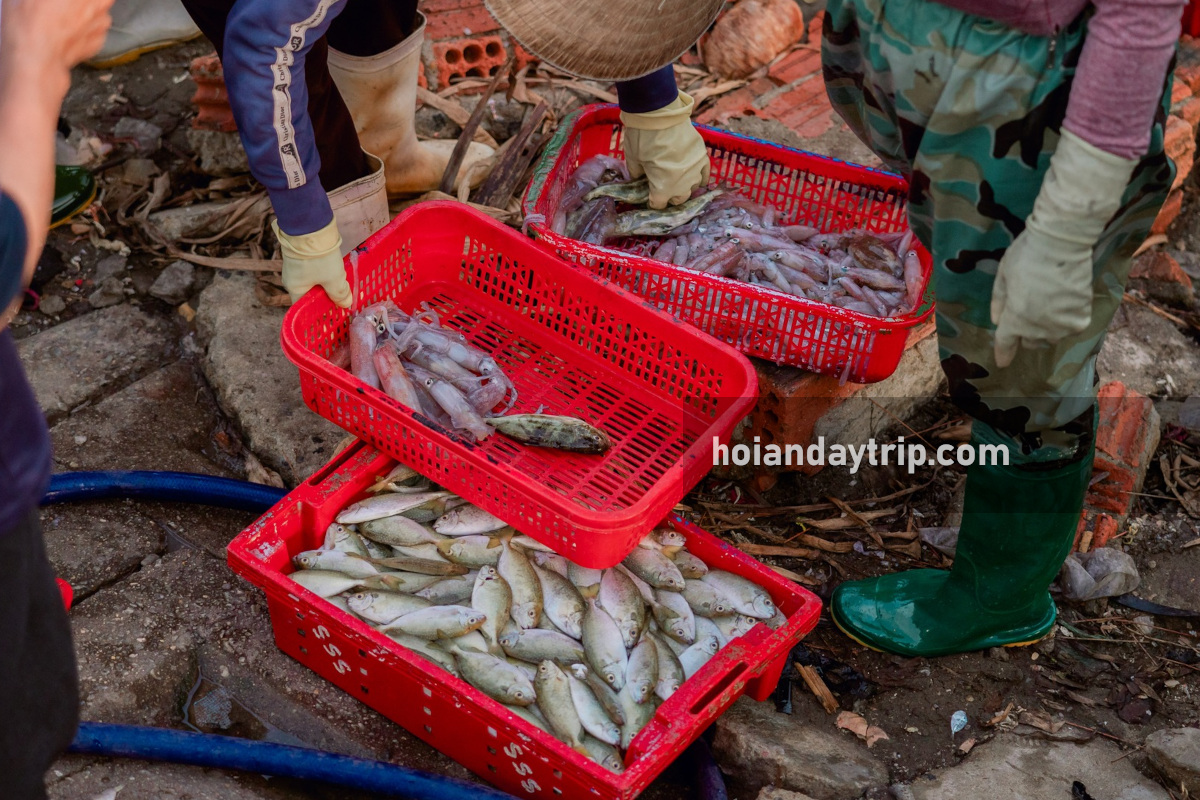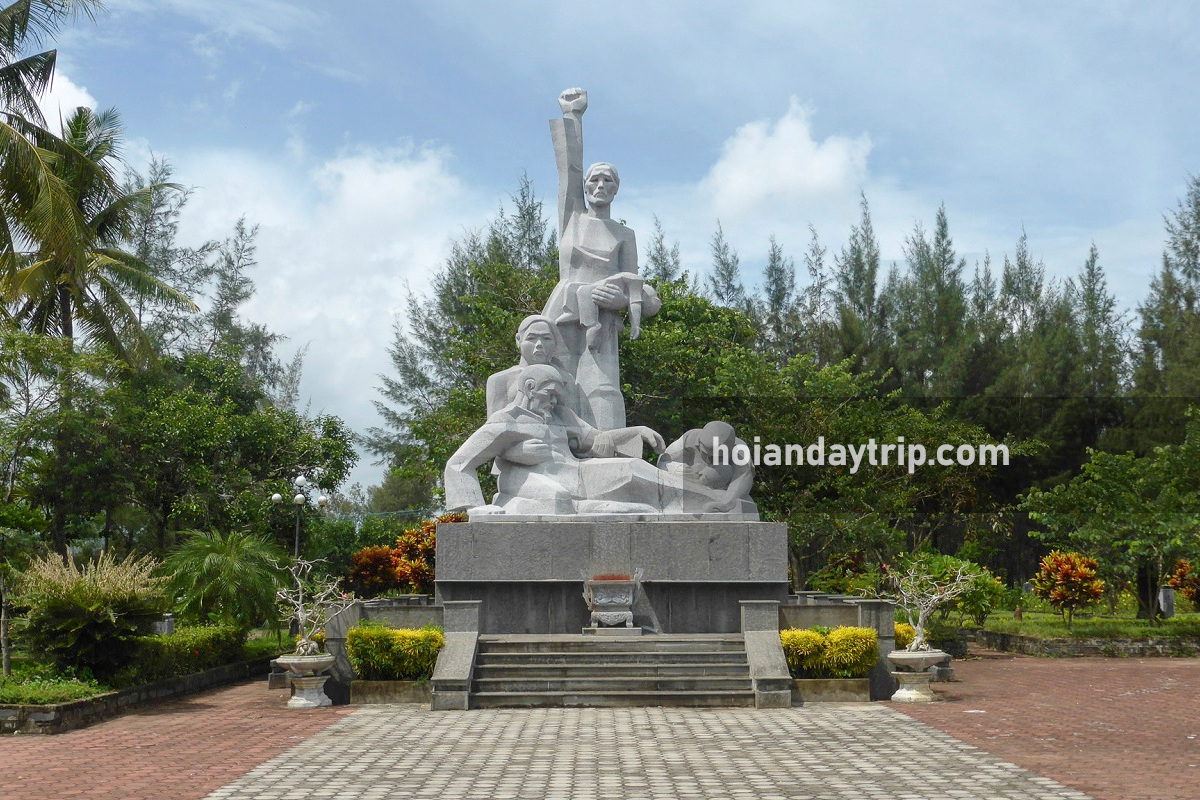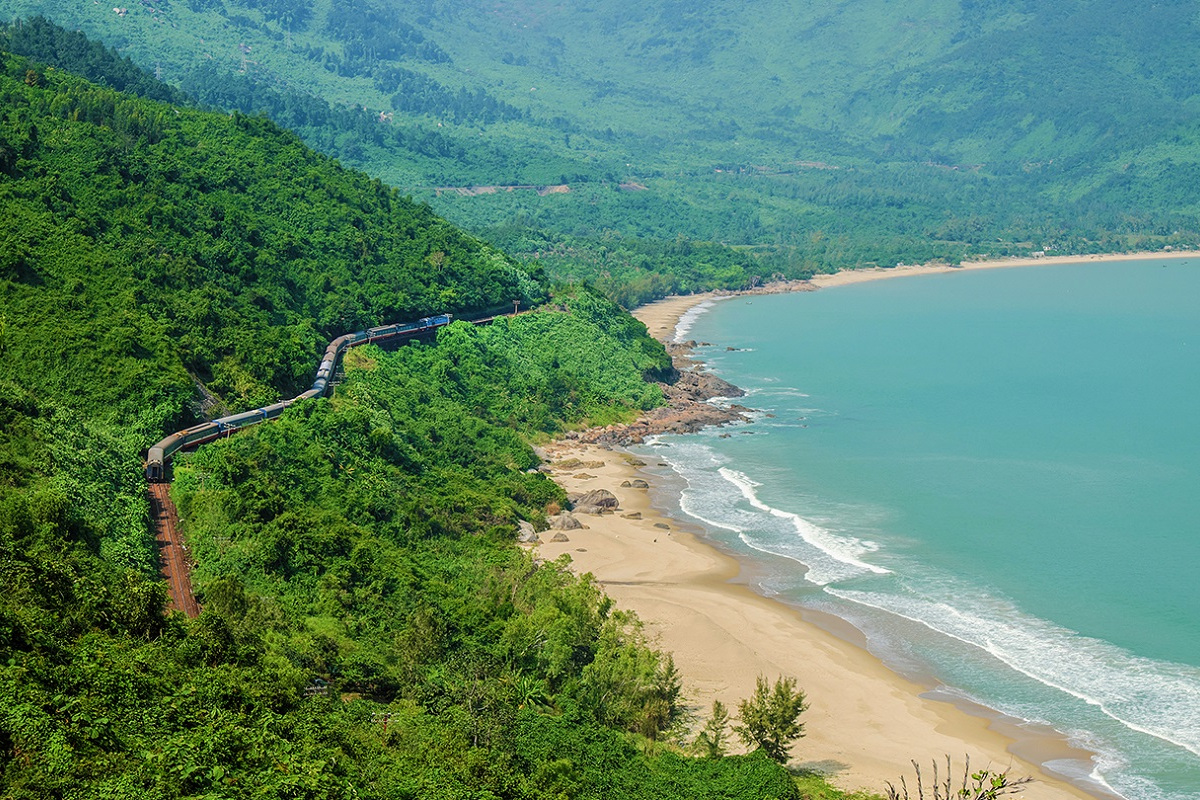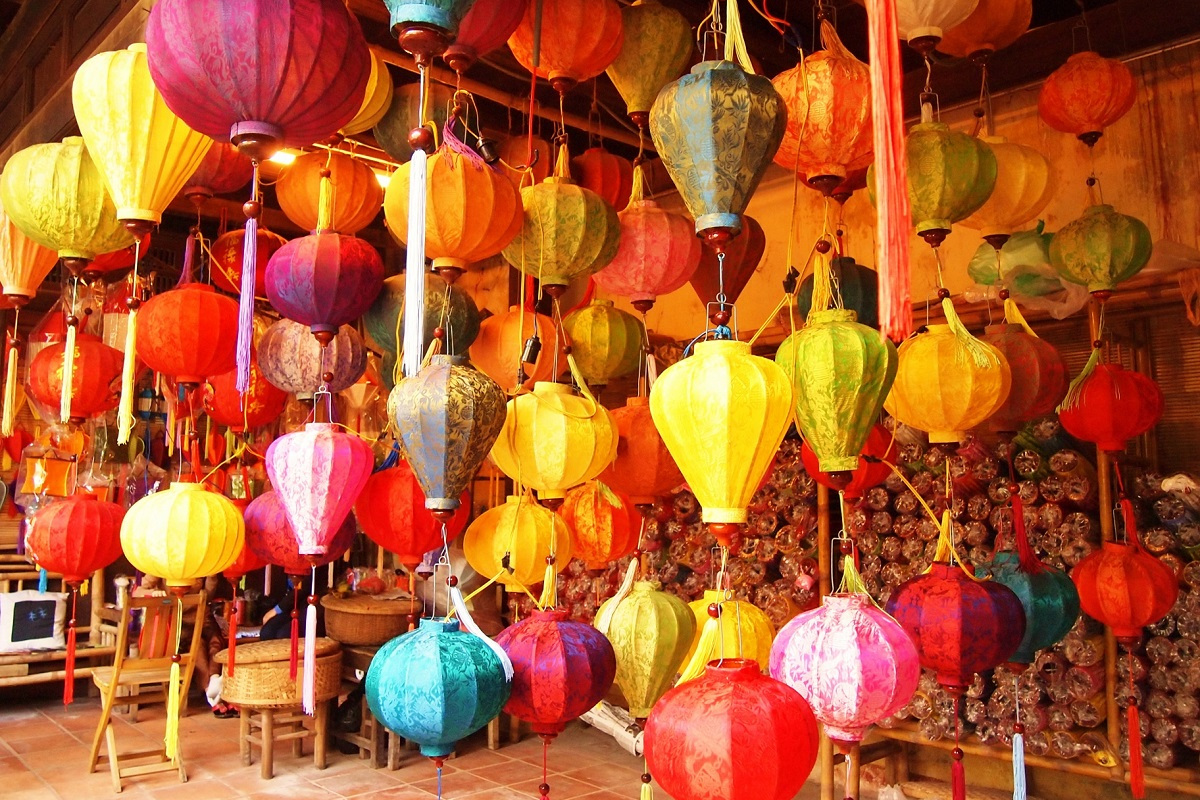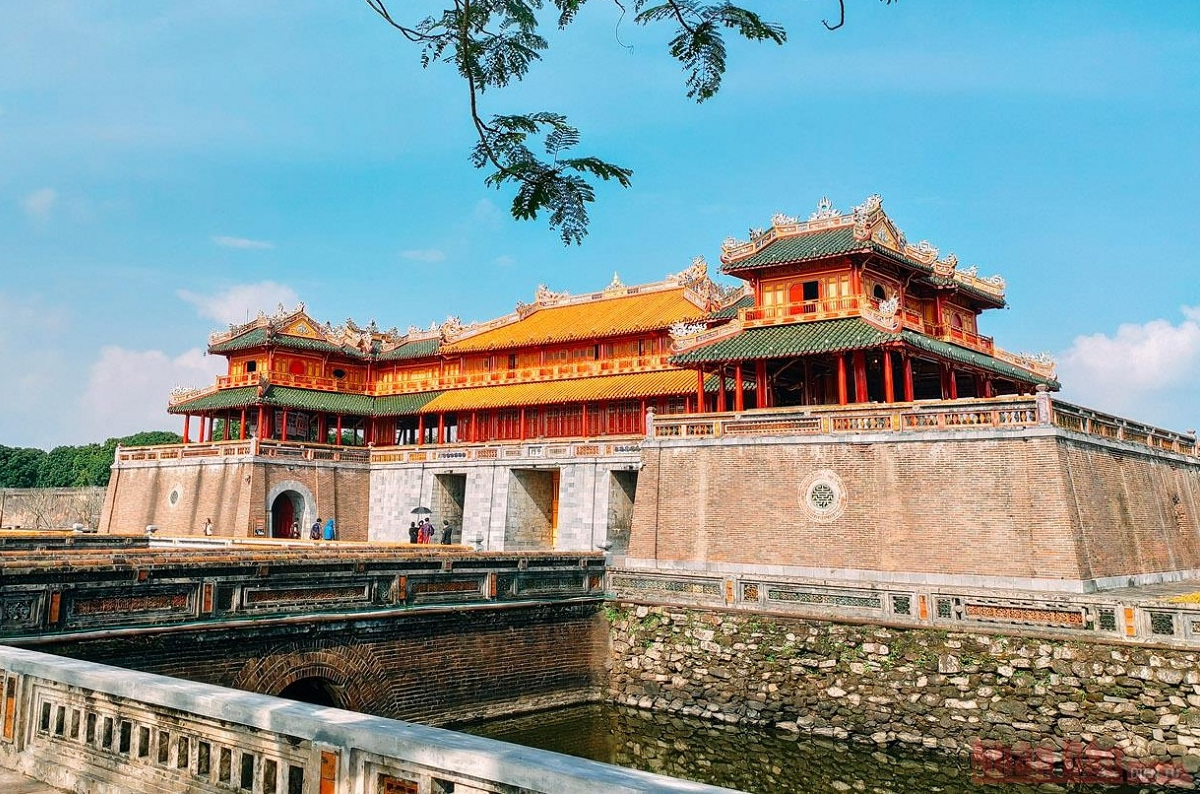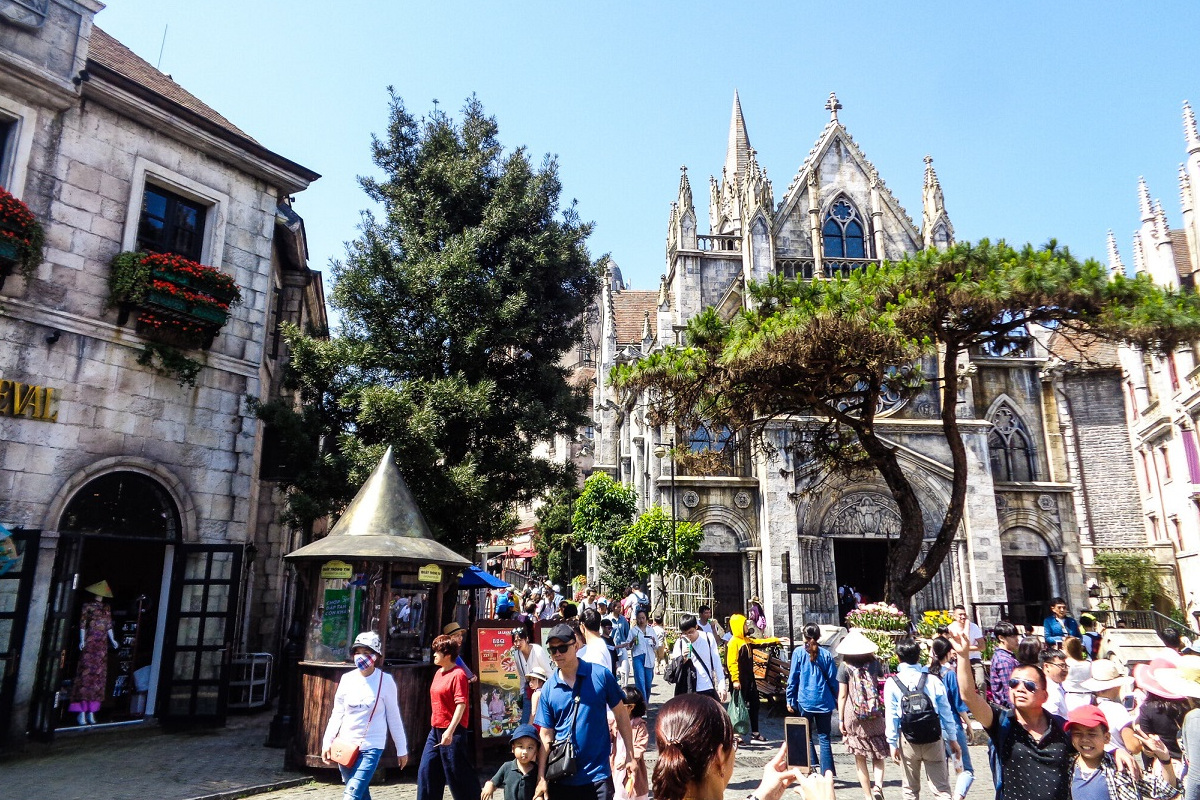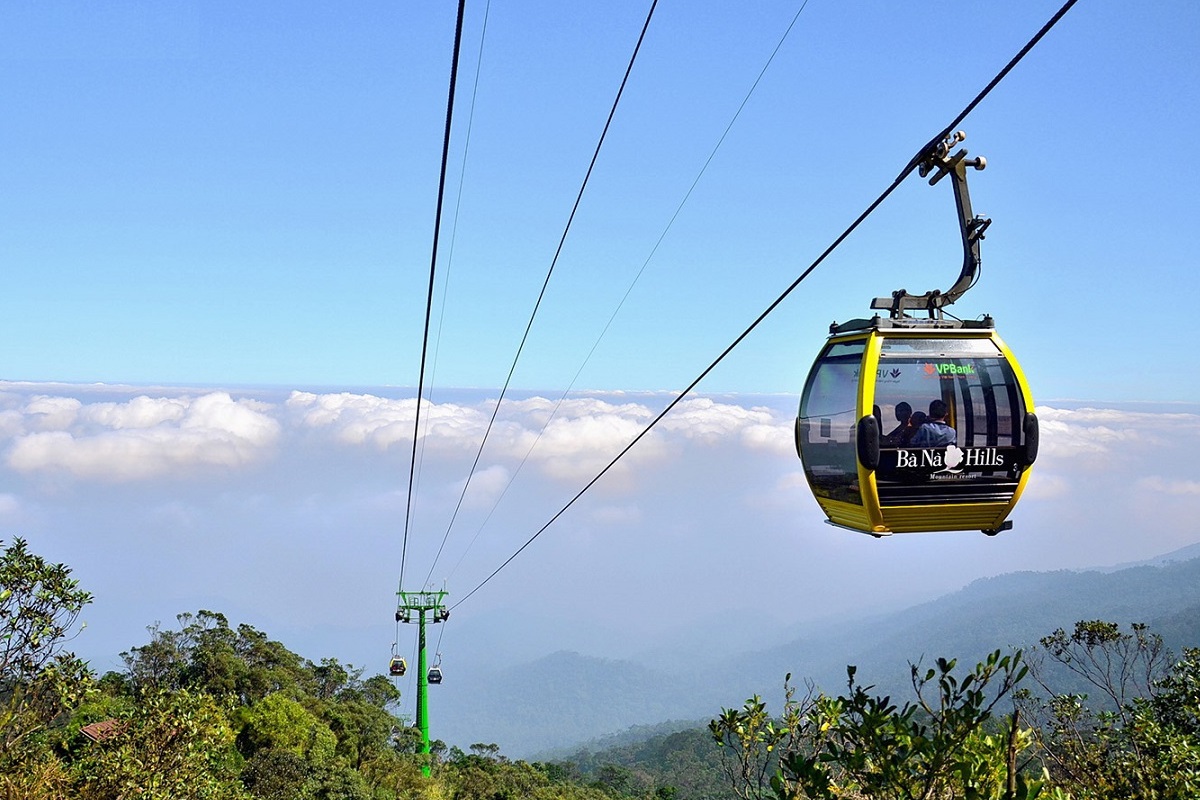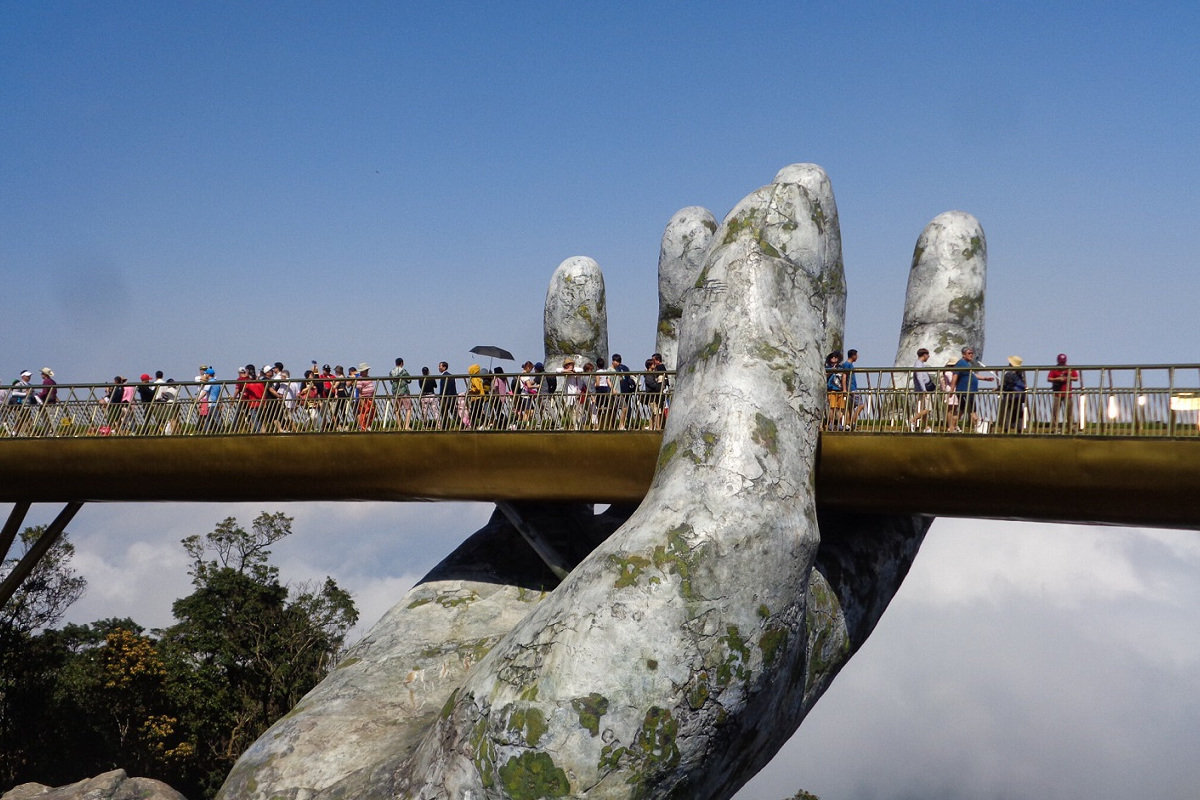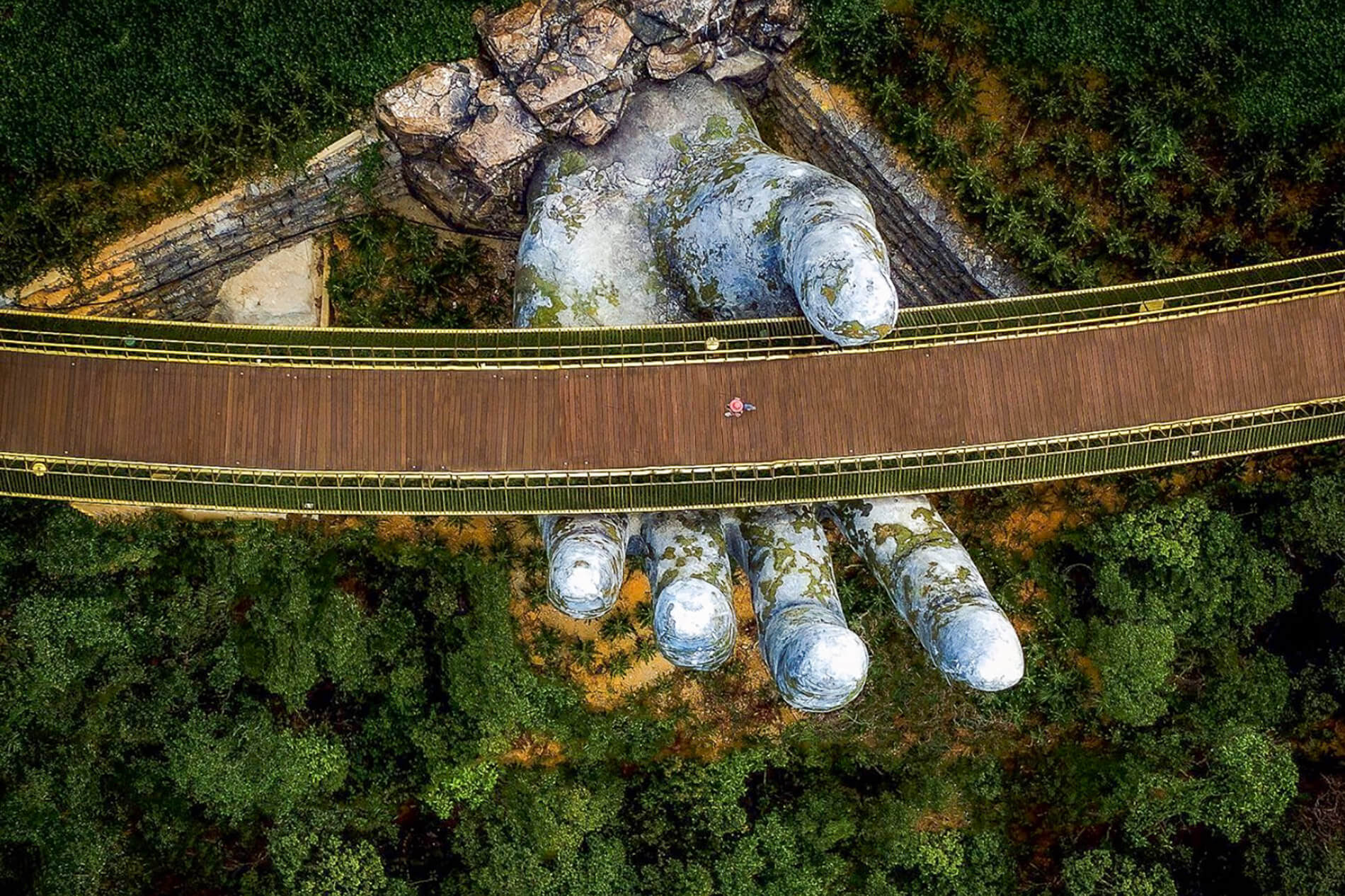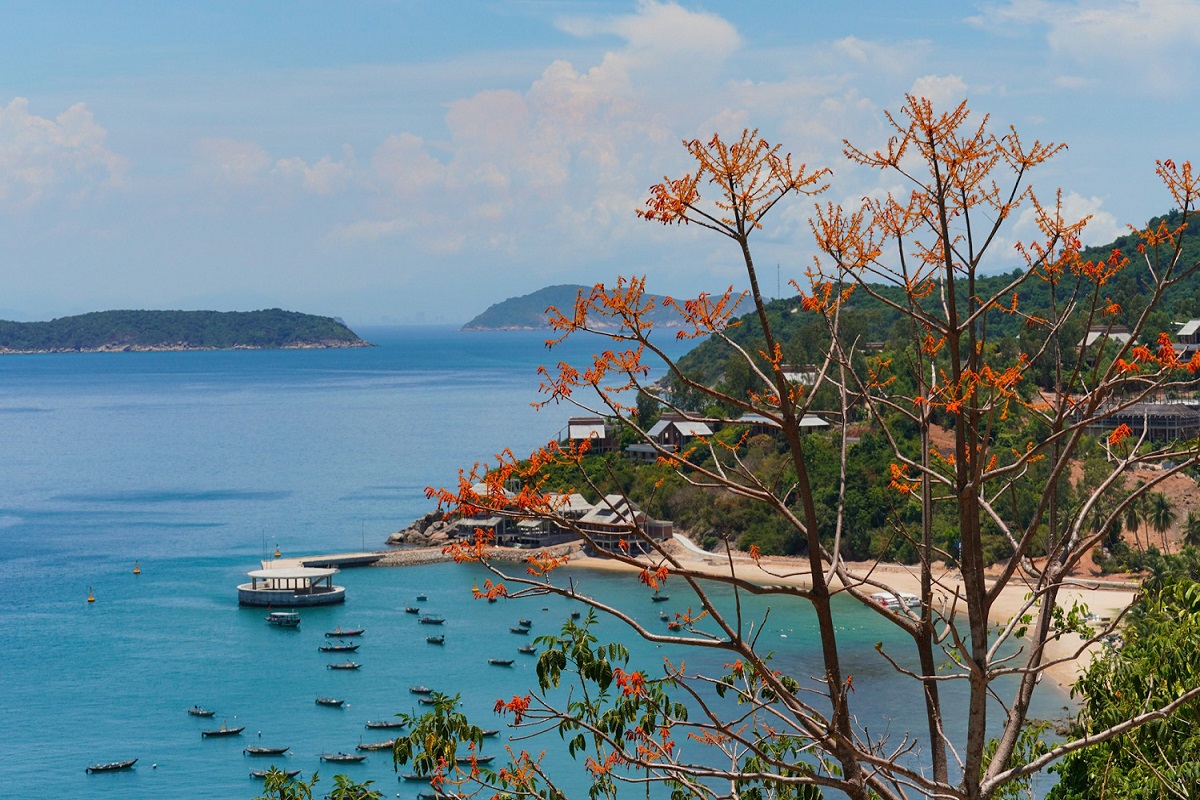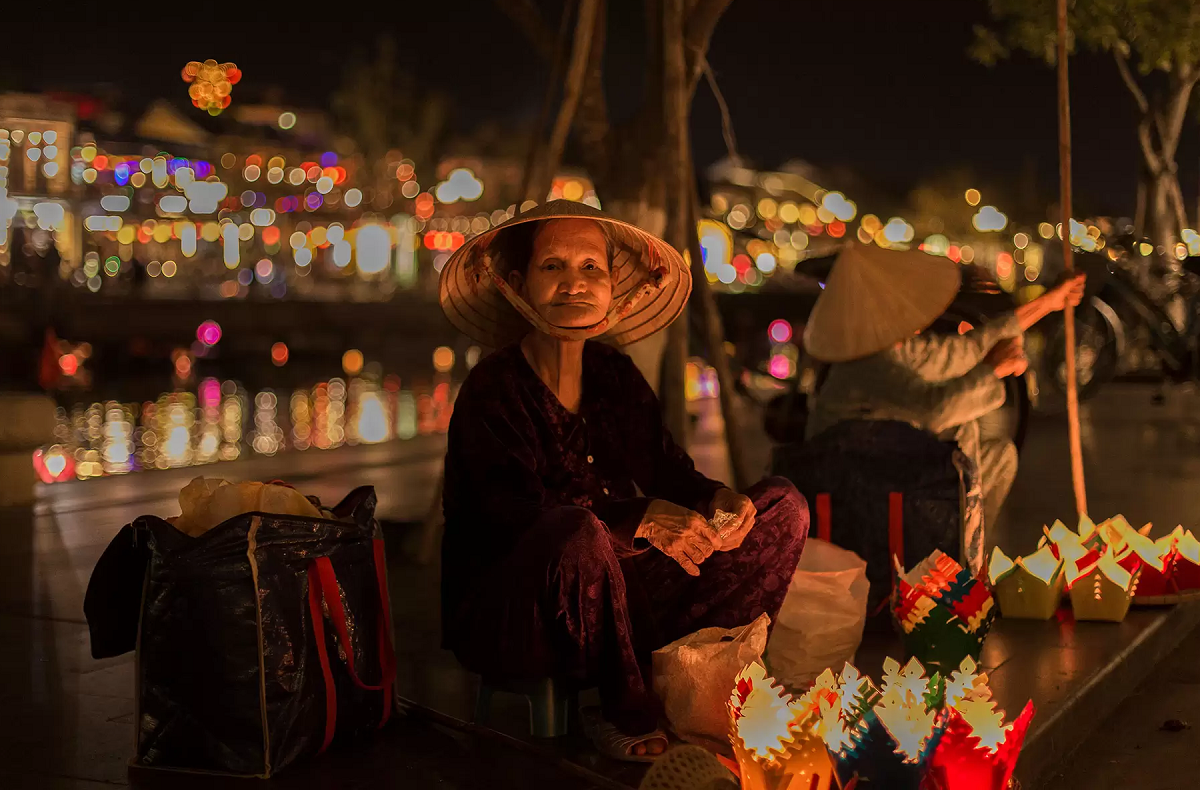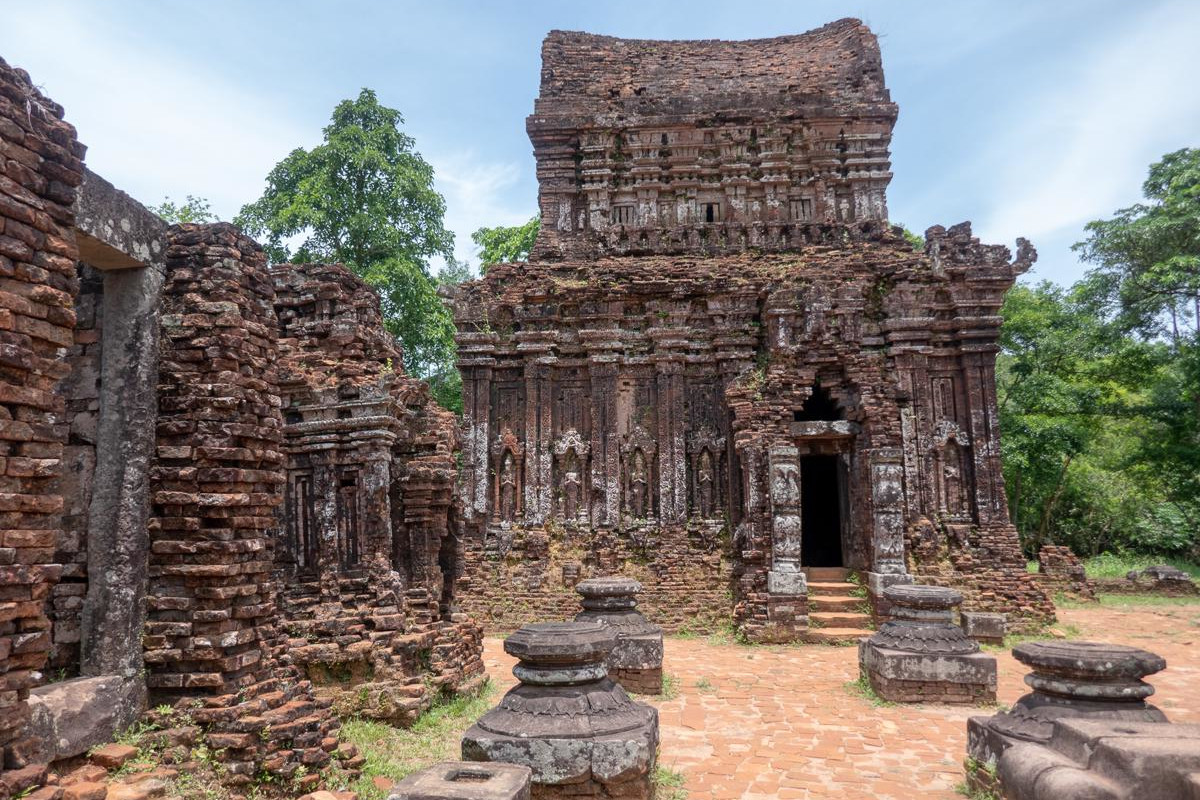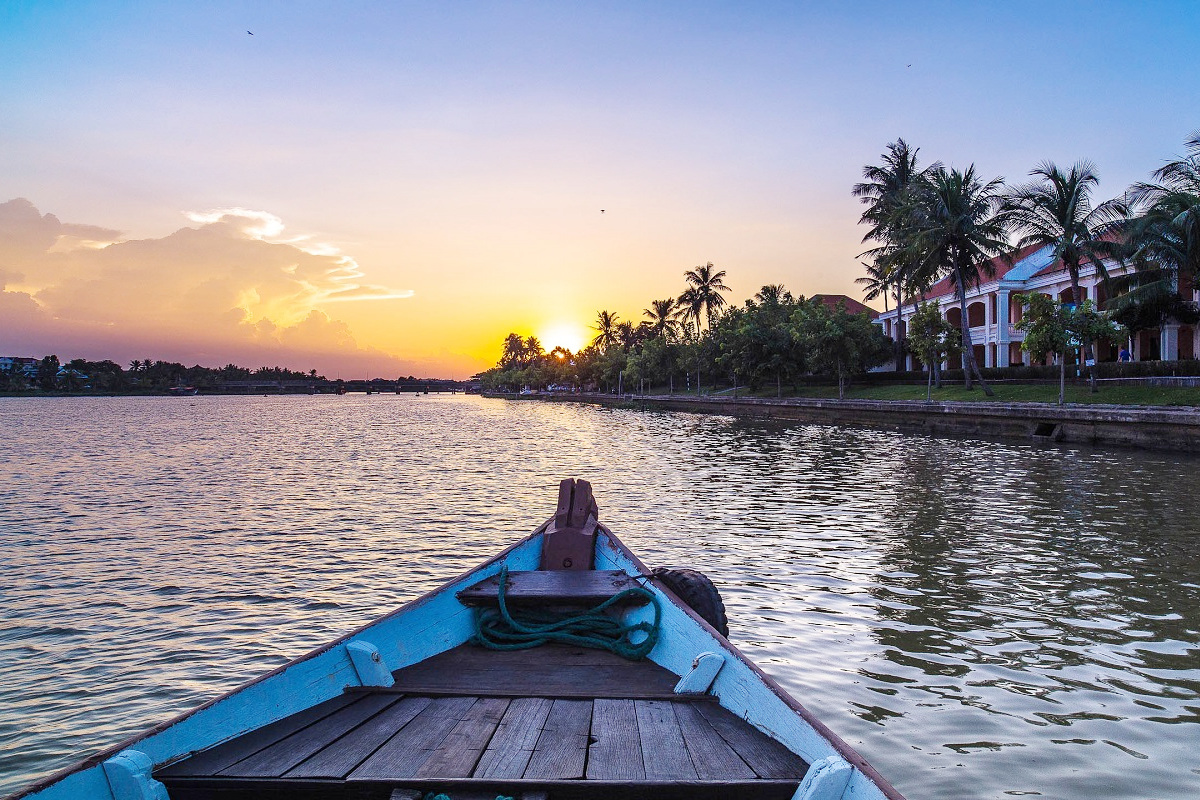The Nguyen dynasty existed 143 years, from 1802 to 1945 with 13 emperors, but only 7 of them had their own mausoleum. On the map, all of these buildings are southeast of Hue city and in the mountains around the source of the Perfume river. Local people have believed that the west direction (sunset) is for death. About the size, imperial tombs in Hue are enormous, and sure, are bigger than any others of the same type in Vietnam. Historians say that their architecture reached the highest level, and nowadays has inspired many generations of architects and designers. So, it’s really worth visiting. Definitely, with a local guide, visitors will learn about history a lot.
This article provides travelers a general view about Hue’s royal tombs – a part of the Complex of Hue monuments that is a Unesco world heritage site. Besides the Imperial city and Thien Mu pagoda, they are places that travelers shouldn’t miss. We highly recommend spending two nights in Hue, to sightsee the old city, the Buddhist temple, and the tombs at a relaxing pace. To understand each sight deeper (and everything around it), it’s too rushed if go within one day. Day tours from Hoi An or Da Nang often include one tomb only due to limited time.
Read also:
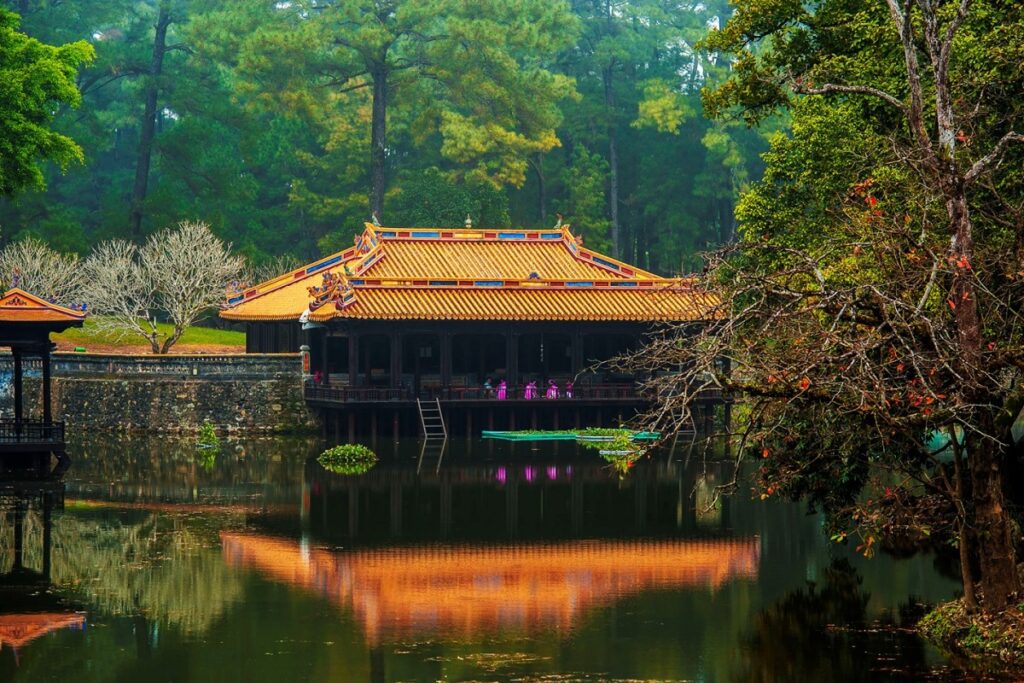
Table of content
- 1 List of Royal Tombs in Hue
- 2 The Best Royal Tombs in Hue
- 3 Hue Royal Tombs Ticket and Prices
- 4 Hue Royal Tombs Dress Code
- 5 How to Get to Royal Tombs of Hue
- 6 Fun Facts about Hue’s Royal Tombs
- 7 Hue Day Trip from Da Nang or Hoi An
- 8 Related Posts
- 9 Thieu Tri Tomb: The Peaceful Royal Tomb of Hue
- 10 Bach Ma National Park: Hiking, Trekking in Da Nang and Hoi An
- 11 Hue to Da Nang By Train: The Best Train Ride in Vietnam
- 12 Hue Royal Tombs: A Complete Guide and What is Best?
- 13 The Hue Abandoned Water Park (Thuy Tien Lake Waterpark)
- 14 Minh Mang Tomb Complete Visitor Guide
- 15 Tu Duc Tomb Complete Visitor Guide
- 16 Hoi An or Hue: Which is Better?
- 17 Lang Co Vietnam Travel Guide
- 18 Thien Mu Pagoda: Guide to Hue’s Most Famous Buddhist Temple
- 19 Perfume River Cruise: Guide to Best Boat Tour in Hue Vietnam
- 20 Tomb of Khai Dinh: The Most Unique Royal Tomb of Hue
- 21 Hai Van Pass Da Nang: Map, Route, Weather, History, Tour
- 22 Hue Imperial City and Forbidden City
- 23 Featured Tours and Experiences
- 23.0.1 Bach Ma National Park Tour from Hue
- 23.0.2 Bach Ma National Park Tour from Da Nang/Hoi An
- 23.0.3 Hoi An Sunrise Fish Market Tour
- 23.0.4 My Lai Massacre Tour
- 23.0.5 Golden Bridge/Ba Na Hills & Hoi An Tour
- 23.0.6 Hoi An Instagram Tour
- 23.0.7 Ky Anh Tunnel & Tam Thanh Mural Village Tour
- 23.0.8 Da Nang to Hue Motorbike Tour with Hai Van Pass & Easy Rider (1 Way)
- 23.0.9 Hue to Da Nang Motorbike Tour with Hai Van Pass & Easy Ride (1 Way)
- 23.0.10 Hue to Hoi An Motorbike Tour with Hai Van Pass & Easy Rider (1 Way)
- 23.0.11 Hoi An to Hue Motorbike Tour with Hai Van Pass & Easy Rider (1 Way)
- 23.0.12 Tra Que Vegetable Village Tour with Cooking Class
- 23.0.13 Ba Na Hills Half Day Tour from Hoi An
- 23.0.14 Marble Mountain & Hoi An Day Tour from Da Nang Port
- 23.0.15 Hue Day Tour from Chan May Port with Lunch
- 23.0.16 Marble Mountain & Hoi An Tour from Chan May Port
- 23.0.17 Ba Na Hills/Golden Bridge Tour from Da Nang Port
- 23.0.18 Ba Na Hills/Golden Bridge Tour from Chan May Port
- 23.0.19 Golden Bridge Private Tour with Ba Na Hills & Lunch
- 23.0.20 Ba Na Hills Afternoon Tour with Golden Hands Bridge
- 23.0.21 Ba Na Hills Private Tour with Golden Hands Bridge
- 23.0.22 Ba Na Hills Half Day Tour with Golden Bridge
- 23.0.23 Ba Na Hills Early Morning Tour to Beat the Crowds
- 23.0.24 Golden Bridge and Ba Na Hills Night Tour
- 23.0.25 Golden Hands Bridge Tour In Sunrise or Sunset (1/2 Day)
- 23.0.26 Cam Kim Island Bicycle Tour From Hoi An
- 23.0.27 Cham Island Tour From Hoi An (Group Tour)
- 23.0.28 Cham Island Tour From Da Nang (Group Tour)
- 23.0.29 Hoi An Vegetarian Food Tour
- 23.0.30 Hoi An Evening Walking Food Tour with Local Foodie
- 23.0.31 Private Hoi An Basket Boat Tour (Shuttle Bus, Bicycle, Bike)
- 23.0.32 Half-day Am Phu Cave Tour (Private)
- 23.0.33 Hoi An Countryside Tour by Electric Car or Bike
- 23.0.34 Da Nang Tour Package From Singapore
- 23.0.35 Hoi An Evening Tour From Da Nang with Lantern Boat Ride
- 23.0.36 Hoi An Walking Food Tour Through Laneways
- 23.0.37 My Son Sanctuary and Hoi An Old Town Tour
- 23.0.38 My Son Day Trip From Hoi An including Marble Mountains and Basket Boat
- 23.0.39 Half Day Hoi An City Tour With River Cruise
- 23.0.40 Son Tra Peninsula Tour with Marble Mountains (Private/Small Group)
List of Royal Tombs in Hue
Tomb of Gia Long Emperor
Location: Dinh Mon village, Huong Tho commune, Huong Tra town, 20 km from Hue city centre
Opening hours: 7 am to 5:30 pm
Who are buried here?: Gia Long king – the founder of the Nguyen dynasty, his first wife (Thua Thien queen), his mother, his sister
Years of construction: 1814 to 1820
Travel guide: https://centralvietnamguide.com/gia-long-tomb
Tomb of Minh Mang Emperor
Location: Huong Tho commune, Huong Tra town, 15 km from Hue city centre
Opening hours: 7 am to 5:30 pm
Who are buried here?: Minh Mang king – the 2nd king of the Nguyen dynasty
Years of construction: 1840 to 1843
Travel guide: https://centralvietnamguide.com/minh-mang-tomb
Tomb of Thieu Tri Emperor
Location: Cu Chanh village, Thuy Bang commune, 7 km from Hue city centre
Opening hours: 7 am to 5:30 pm
Who are buried here?: Thieu Tri king – the 3rd king of the Nguyen dynasty, his wife (Tu Du queen)
Years of construction: 1848
Travel guide: https://centralvietnamguide.com/thieu-tri-tomb
Tomb of Tu Duc Emperor
Location: Doan Nhu Hai street, Duong Xuan Thuong village, Thuy Xuan ward, 6 km from Hue city centre
Opening hours: 7 am to 5:30 pm
Who are buried here?: Tu Duc king – the 4th king of the Nguyen dynasty, his wife (Le Thien Anh queen), his adopted son (Kien Phuc king)
Years of construction: 1864 to 1867
Travel guide: https://centralvietnamguide.com/tu-duc-tomb
Tomb of Duc Duc Emperor
Location: Duy Tan street, Phuoc Vinh ward, 4 km from Hue city centre
Opening hours: closed
Who are buried here?: Duc Duc king – the 5th king of the Nguyen dynasty, his son (Thanh Thai king), his grand son (Duy Tan king)
Years of construction: 1890
Travel guide: https://centralvietnamguide.com/duc-duc-tomb
Tomb of Dong Khanh Emperor
Location: Doan Nhu Hai street, Cu Si village, 6,5 km from Hue city centre
Opening hours: 7 am to 5:30 pm
Who are buried here?: Dong Khanh king – the 9th king of Nguyen dynasty, his father, his wife, Canh princess (son of Gia Long king)
Years of construction: 1888, and 1916 to 1923
Travel guide: https://centralvietnamguide.com/dong-khanh-tomb
Tomb of Hiep Hoa Emperor
Location: Tam Thai street, 8 km from Hue city centre
Opening hours:
Who are buried here?: Hiep Hoa king – the 10th king of the Nguyen dynasty
Years of construction: 2013
Tomb of Khai Dinh Emperor
Location: Chau E village, Khai Dinh street, 9 km from Hue city centre
Opening hours: 7 am to 5:30 pm
Who are buried here?: Khai Dinh king – the 11st king of Nguyen dynasty
Years of construction: 1920 to 1931
Travel guide: https://centralvietnamguide.com/tomb-of-khai-dinh
The Best Royal Tombs in Hue
Minh Mang Tomb
This tomb is the burial place for Minh Mang king who ruled Vietnam from 1820 to 1840. He was the 2nd emperor of the dynasty, the son of Gia Long king and the father of Thieu Tri king. In his reign, the country became strong, wealthy, peaceful, and its territory was extended at the largest size ever in history. The Champa kingdom was annexed by him, and its 17-centuries-long-history ended. For that reason, people say Minh Mang is the most successful king of Hue.
The Minh Mang tomb is a wonderful combination of traditional-style buildings and their surrounding landscape. It comprises 40 constructions embraced by lakes, pine hills and flower gardens. Everything was designed by the king who had an in-depth knowledge about philosophy, cosmology, art, and more. From the above, this mausoleum looks like a human leaning the mountains, relaxing and overlooking the rivers.
For full details, please read our comprehensive guide about Minh Mang tomb.
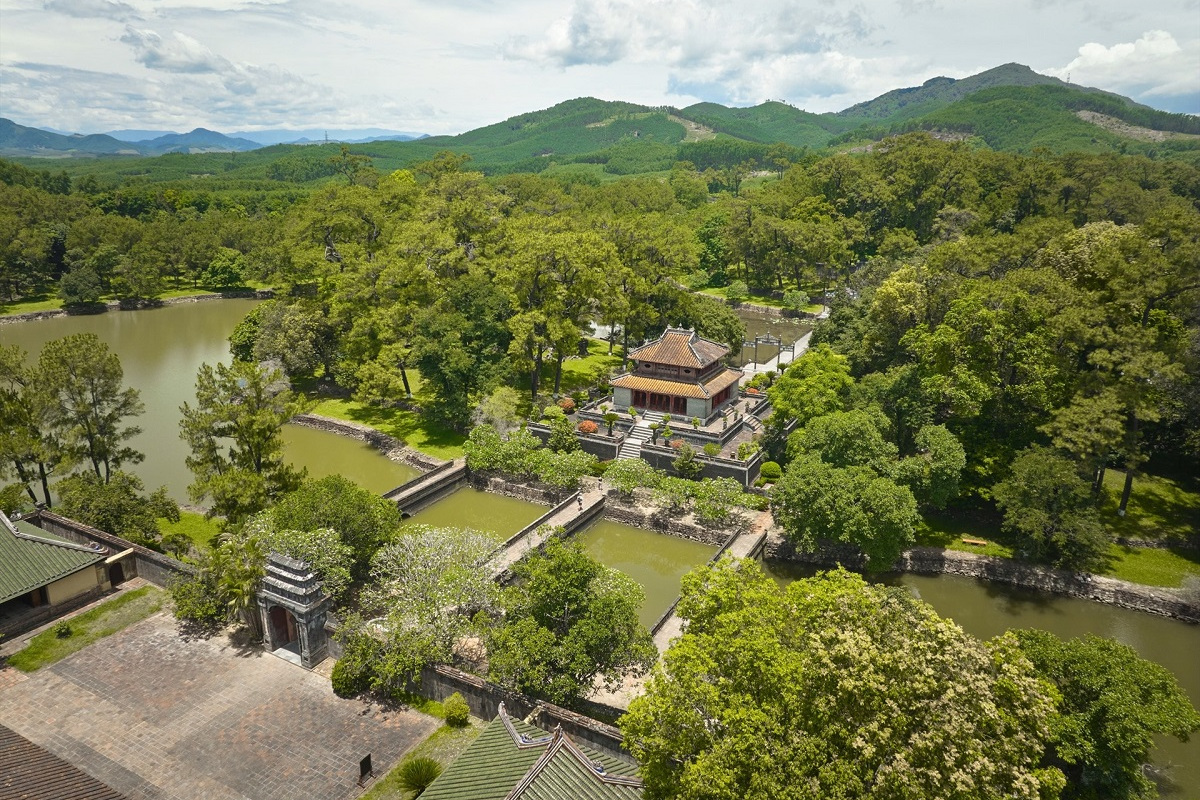
Tu Duc Tomb
From the centre of Hue city, Tu Duc tomb is nearer from Minh Mang tomb. Tu Duc – the 4th emperor is buried here, with his wife – Le Thien Anh queen and his adopted son – Kien Phuc king. Originally, its name means “the tomb that survives for thousands of years” but was changed to “the tomb of modesty” after the protest of workers. It served as a mountain palace for the king for 16 years in his spare time, and this is one of reasons to make it special. Personal life and the reign of Tu Duc had many ups and downs that visitors are willing to know about.
Tu Duc king mausoleum is famous for grand imperial buildings set inside an extremely lovely garden. It comprises a temple compound, pavilions, king’s tomb, queen’s tomb, and Kien Phuc king tomb and temple. Around them, there are lotus lakes with an island and clear streams at the foot of pine hills. Everything just makes sightseers feel that they’re not really in a burial place. This is another jewel about Vietnamese traditional architecture and design.
Read full details in https://centralvietnamguide.com/tu-duc-tomb/
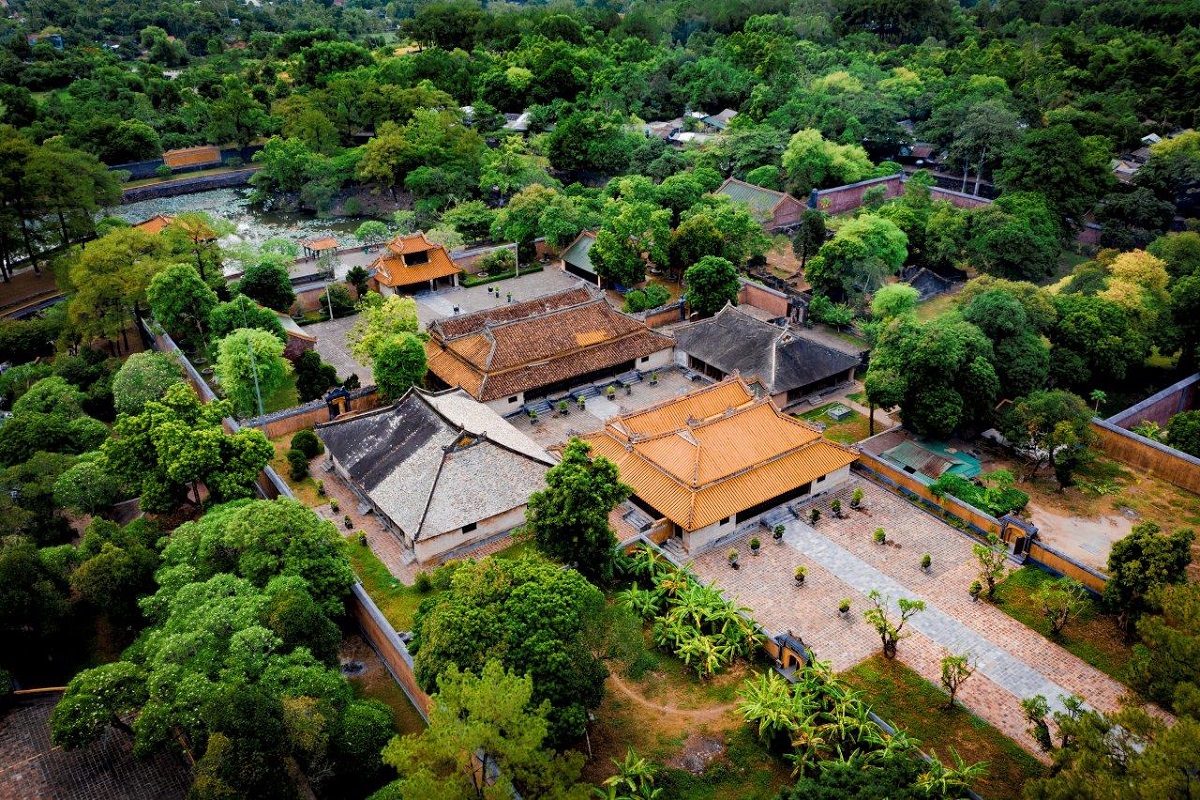
Khai Dinh Tomb
Different from others, the tomb of Khai Dinh king was built of concrete cement, and shows a mix between Eastern and Western cultures. It sits on a hill, looking to a valley with mountains on two sides. This tomb has been inspiring artists all over the world due to its unique architecture and art. In the worshipping hall, local artisans used hands to mosaic plenty of small pieces of ceramics and glasses to make decorative paintings. On its ceiling, the mural is just a masterpiece. Seriously, visitors won’t see something like that elsewhere in Vietnam.
The king, Khai Dinh ruled the country from 1916 to 1925. He was the first Vietnamese emperor ever traveled to France, and he was also influenced by French culture. Bao Dai – his only son succuded his throne and then was dethroned in World War II.
To know everything once visiting, please read our guide about Khai Dinh tomb.

Hue Royal Tombs Ticket and Prices
Entrance Price of Hue’s Royal Tombs
The ticket price of Minh Mang tomb, Tu Duc tomb, Khai Dinh tomb and Gia Long tomb is 150,000 VND for adults and children above 12 years old, and 30,000 VND for children from 7 to 12 years old. In the case of Gia Long tomb, it’s free for 7-to-12-years-old visitors. Each adult will pay 100,000 VND to visit Dong Khanh tomb, and it’s free for anybody smaller than 12 years old.
Combo Tickets
To save, visitors can get combo tickets and it’s possible to buy them at any tombs or the Imperial city. If just visit Minh Mang tomb and Gia Long tomb, the price is 240,000 VND for adults and children above 12 years old, and 30,000 VND for children from 7 to 12 years old. The combo of Tu Duc tomb and Dong Khanh tomb, it’s 200,000 VND and 30,000 VND respectively.
With the Imperial city, there are 4 ticket combos: (1) the Imperial city, Minh Mang tomb and Khai Dinh tomb, (2) the Imperial city, Minh Mang tomb and Tu Duc tomb, (3) the Imperial city, Tu Duc tomb and Khai Dinh tomb, and (4) the Imperial city, Minh Mang tomb, Tu Duc tomb and Khai Dinh tomb. The price for three sights is 420,000 VND for adults and children above 12 years old, and 80,000 VND for children from 7 to 12 years old. The 4-sights ticket costs 530,000 VND and 100,000 VND respectively.
Kids under 7 years are free of charge to enter any tombs.
Hue Royal Tombs Dress Code
Like the rest of the Complex of Hue monuments, visitors have to wear respectively. In detail, please make sure that the clothings covers the armpits, navel, and knees and is made of fabrics which people can’t see through. It also means that the bikini, crop top, shorts, and others are not proper. If somebody gets these things, they are not allowed to enter the tombs.
Note: Long garments will make you hot. Our recommendation is bringing a long piece of fabric (like sarong) to cover when visiting. Just need to wrap it around and tight up. Please have one for your own because a cover may not be at any tombs.
In the dry season, from January to August, it’s needed to prepare sun cream, sun glasses, a hat/cap or umbrella, comfortable clothings and shoes, and bottles of water. If possible, travelers should start the trip early in the morning or late afternoon, to avoid strong heat in the midday.
In the rainy season, from September to December, rain poncho/jacket or umbrella and waterproof shoes are necessary. Before plan to visit the city (or the tombs), please don’t forget to check the weather forecast. Typhoons with non-stop heavy rains will happen in these months (earlier or later up to each year).
How to Get to Royal Tombs of Hue
Where are the Royal Tombs of Hue?
Royal tombs of Hue city are to the south and west of its centre. The distance from Phu Xuan bridge – its heart to the tombs is from 4 to 20 kilometers. Based on the distance, the order for the major mausoleums is Tu Duc tomb, Dong Khanh tomb, Thieu Tri tomb, Khai Dinh tomb, Minh Mang tomb and Gia Long tomb.
Taxi and Car
Families or groups should look for a private car to get to the royal tombs of Hue from the city centre. The price depends on the size of the car, and how many sights in the itinerary (not by hour). Text us in whatsapp number +84968009827 to ask for further details, recommendations and know the cost. We also have English speaking drivers who can communicate with basic English and are helpful during the day.
Taxi fare is metered, around 15,000 VND for each kilometer. The furthest tomb is Gia Long tomb, 20 km from Hue downtown. So, for one way to get there, the estimated cost will be 300,000 VND. Definitely, this price is lower for other tombs because they’re nearer. Although easy to arrange, traveling with a taxi is quite expensive and companies charge the passengers if stay in the sights longer than one hour.
Read also: Hue Private Car and Driver
Motorbike
This is the best option for couples and those who travel alone, and it’s also cheap. Full day motorbike rental now ranges from 100,000 to 200,000 VND, depending on the type (automatic or semi-automatic). Gasoline is excluded, but a helmet and rain poncho are provided for free. The quickest way to hire one bike is from the hotel. Sure, don’t have to verify anything.
From anywhere in Hue city, travelers need to go to Nam Giao esplanade first. There, Le Ngo Cat road leads to Tu Duc tomb and Dong Khanh tomb. If want to see other tombs, find Minh Mang road. Before Cau Tuan bridge, will see Thieu Tri tomb and after it, there are Minh Mang tomb and Gia Long tomb. Crossroads around this bridge is quite dangerous, so travelers have to pay attention. Khai Dinh tomb is in Khai Dinh road which separates from Minh Mang road from the intersection near the Pilgrimage village resort.
Parking fee is around 5,000 VND at any tombs.
Hue Royal Tombs Tour
Every day, local companies organize a half-day guided tour to Hue’s royal tombs, both private and join-in-group. Full day trips often include the Imperial city, Thien Mu pagoda and a couple of famous tombs. If like to sightsee all tombs, you should book a private tour. Text us in whatsapp number +84968009827 for any assistance.
Fun Facts about Hue’s Royal Tombs
These are fun facts about imperial tombs in Hue city:
- Gia Long tomb is the first tomb, and the last one is Khai Dinh tomb. Khai Dinh tomb is also the last imperial mausoleum in Vietnamese history
- The largest walled tomb is Minh Mang tomb (18 hectares), and the second one is Tu Duc tomb (12 hectares)
- The smallest tomb is Khai Dinh tomb, just nearly 1 hectare
- The longest built tomb is Khai Dinh tomb (11 years) and the quickest built tomb is Thieu Tri king (10 months)
- The furthest tomb is Gia Long tomb (20 km) and the nearest tomb is Duc Duc tomb (4 km)
- Tu Duc king stays in his tomb when he is still alive
- Duc Duc tomb is the burial place for 3 generations of a family: Duc Duc king, Thanh Thai king – the son, and Duy Tan king – the grandson
- Gia Long tomb, Thieu Tri tomb and Dong Khanh tomb have no protective walls
- Tourists can get Minh Mang tomb directly by boat on the Perfume river
- Apart from others, Khai Dinh tomb is totally constructed by concrete cement, imported from France
Hue Day Trip from Da Nang or Hoi An
It’s possible to visit one of 7 royal tombs in Hue within a day trip from Da Nang or Hoi An to Hue. This tomb may be Minh Mang tomb, Khai Dinh tomb or Tu Duc tomb, depending on the likings of travelers who book the tour. Two other must-see attractions – the Imperial city and Thien Mu pagoda are also in the itinerary. Before lunch with local foods and specialties, the bus will ride over Hai Van pass, stop for pictures at Lang Co lagoon and the tomb. In the afternoon reschedule, it takes travelers 1 to 2 hours to visit the Old city and then they learn about Buddhist culture at the pagoda.
Related Posts
Thieu Tri Tomb: The Peaceful Royal Tomb of Hue
Thieu Tri emperor tomb is an unpopular place to visit in Hue. From the city centre, it’s closer than Khai Dinh tomb, Minh Mang tomb and Gia Long tomb, and
Bach Ma National Park: Hiking, Trekking in Da Nang and Hoi An
Two best places for trekking and hiking in and near Da Nang are Son Tra mountain (peninsula) and Bach Ma national park. Which one is better is actually personal because these
Hue to Da Nang By Train: The Best Train Ride in Vietnam
Like Hanoi to Sapa, many travelers choose to get from Hue to Da Nang by train. Not just a cheap deal, the experience on this ride is definitely stunning and
Hue Royal Tombs: A Complete Guide and What is Best?
The Nguyen dynasty existed 143 years, from 1802 to 1945 with 13 emperors, but only 7 of them had their own mausoleum. On the map, all of these buildings are
The Hue Abandoned Water Park (Thuy Tien Lake Waterpark)
Recently, the Abandoned water park in Hue is known by travelers worldwide thanks to social media and online magazines, just like the Golden hands bridge in Da Nang. It was
Minh Mang Tomb Complete Visitor Guide
Minh Mang is the 2nd ruler of the Nguyen dynasty, the king of Vietnam from 1820 to 1840. His contributions to the country can’t be counted, including the largest territory Vietnamese
Tu Duc Tomb Complete Visitor Guide
Tomb of Tu Duc emperor is one of three most visited royal mausoleums in Hue. Two others are Minh Mang tomb – the tomb of Tu Duc king’s grandfather and
Hoi An or Hue: Which is Better?
Both Hoi An and Hue cities are in the middle of Vietnam, and they’re not far from each other (about 130 km). Therefore, for those who travel from north to
Lang Co Vietnam Travel Guide
Lang Co was a lovely backwater town nestled at the foot of spectacular Hai Van Pass for some decades. Not yet widely known because of the popularity of beaches in
Thien Mu Pagoda: Guide to Hue’s Most Famous Buddhist Temple
Thien Mu Pagoda is in the itinerary of any Hue city tours and day trips from Da Nang or Hoi An, because of its various interests. In short, it’s really
Perfume River Cruise: Guide to Best Boat Tour in Hue Vietnam
Perfume River cruise is a popular activity in Hue, Vietnam. Different from other sightseeing rides, this experience is by a dragon boat that was used only for the king formerly.
Tomb of Khai Dinh: The Most Unique Royal Tomb of Hue
Tomb of Khai Dinh is the last emperor mausoleum built in Hue and Vietnam. It’s famous for one-of-the-kind architecture and art that was never seen in the country at that
Hai Van Pass Da Nang: Map, Route, Weather, History, Tour
Truong Son or Annamite Range is the most dramatic mountain ridge in Vietnam. When it juts out into the sea, spectacular Hai Van Pass is formed. This amazing sculpture of
Hue Imperial City and Forbidden City
Located by the Perfume River, Hue Imperial City and Forbidden City are the 2nd and 3rd walls of the Citadel, seat of Vietnamese power from 1802 to 1945. These are home of luxury-decorated palaces,

